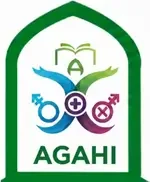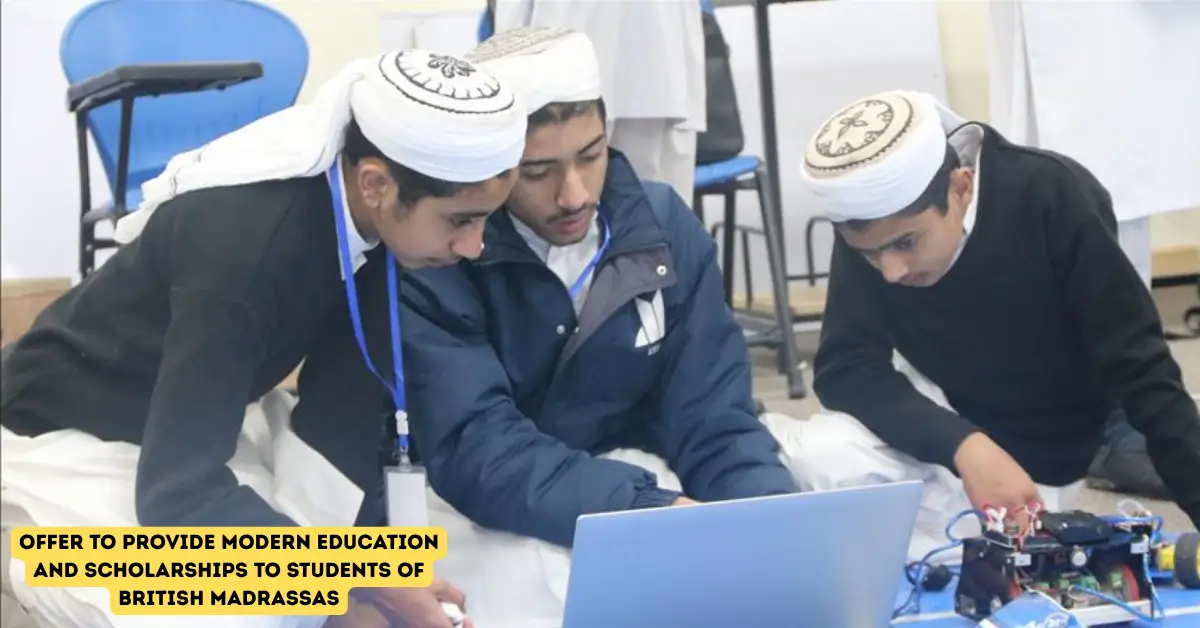Modern Technical Education for Madrassa Students
Modern Technical Education for Madrassa Students: In a significant diplomatic development, Britain has offered to assist Pakistan in providing modern technical education and skills to students attending madrassas across the country. The offer came during a meeting between British High Commissioner Jane Marriott and Pakistan’s Federal Minister for Religious Affairs, Sardar Muhammad Yousaf. This collaboration promises to bring significant educational reforms to Pakistan’s madrassa system, aligning it with global educational standards and contributing to the nation’s future development.
Strengthening Diplomatic Ties: Pakistan and Britain’s Partnership
The relationship between Pakistan and Britain has always been one of mutual respect and cooperation, especially in the areas of culture, trade, and education. Sardar Muhammad Yousaf, in his discussions with the British High Commissioner, emphasized Pakistan’s rich cultural heritage and its respect for diversity. He highlighted how Pakistan values its religious pluralism, which is fundamental to the nation’s identity. Yousaf expressed his optimism about the future of Pakistan-Britain relations, particularly in the field of education, noting that both countries could learn from each other to enhance interfaith harmony.
This offer from the UK comes at a time when Pakistan is seeking to further its educational goals by ensuring that students, especially those in madrassas, are equipped with the skills necessary to thrive in a modern world. It also reflects a broader strategy by both countries to improve relations and build a better future for young people across the globe.
Punjab Govt Hosts Grand Mass Wedding Ceremony Under Dhi Rani Program for 130 Daughters
Promoting Interfaith Harmony and Religious Diversity in Pakistan
One of the key messages from Pakistan’s Minister for Religious Affairs was his country’s deep commitment to interfaith harmony and the protection of minority rights. He pointed out that Pakistan is home to millions of people from diverse religious backgrounds, including Muslims, Hindus, Sikhs, and Christians. Despite the challenges posed by religious intolerance in the region, particularly in neighboring India, Pakistan remains committed to integrating its minority communities into the social fabric of the nation.
Pakistan has taken significant steps to enhance the participation of minorities in various sectors of society, fostering greater understanding between different religious groups. By offering modern technical education to madrassa students, Pakistan hopes to create more inclusive opportunities for students from all religious communities, ensuring a more harmonious future for all.
The Need for Modern Education in Madrassas
Madrassas have traditionally focused on religious education, with a limited curriculum centered around Islamic studies. While this has served its purpose for centuries, the modern world demands a broader set of skills. Today’s globalized economy requires a workforce that is adept in technology, business, science, and other practical skills. Unfortunately, many madrassa students are not receiving the technical and vocational training that would enable them to compete in the modern job market.
Recognizing this gap, the Pakistani government has initiated several reforms, including the Prime Minister’s Youth Program, to provide modern technical education to madrassa students. However, these reforms need further support and development, which is where Britain’s offer becomes crucial. By bringing expertise and resources to this endeavor, Britain can help Pakistan create an education system that prepares young people for the challenges of the 21st century.
Fake News Exposed: Unmarried Couples Not Barred from Visiting Naran, Confirms Authorities
The UK’s Offer: Scholarships, Exchange Programs, and Technical Training
The British High Commissioner, Jane Marriott, extended an offer to support Pakistan in transforming its madrassa education system. The UK government has proposed several initiatives, including scholarships and exchange programs for madrassa graduates. These programs would allow students who complete their madrassa education to further their studies in the UK, gaining exposure to advanced technical skills and knowledge.
Additionally, the UK is offering to help integrate modern technical skills into the madrassa curriculum. This could include subjects like information technology, engineering, business management, and other vocational training that would make madrassa students more competitive in the global job market.
With over 18,000 madrassas registered across Pakistan, the scale of this initiative is vast, but the potential benefits for the country’s youth are immeasurable. Providing students with the tools they need to succeed in various fields will not only improve their individual prospects but will also contribute to Pakistan’s economic growth and social development.
Education as a Tool for Interfaith Harmony
Education has the power to bridge divides, foster understanding, and reduce extremism. By offering madrassa students the opportunity to pursue modern technical education, Pakistan and the UK are also taking a significant step toward promoting interfaith harmony. When students of diverse backgrounds—whether Muslim, Hindu, Sikh, or Christian—study together and acquire the same skills, it becomes easier to build mutual respect and understanding.
Both Pakistan and Britain have long recognized the importance of interfaith dialogue and cooperation in creating peaceful, inclusive societies. By investing in education, both countries aim to combat extremism, promote tolerance, and build stronger communities. The UK’s support for madrassa students in Pakistan could be a key element in this broader effort to foster peaceful coexistence between different religious and cultural groups.
Comprehensive Guide to 8171 Benazir Phase 3 Payments: Eligibility, Collection Process & Support
Looking Ahead: Future Cooperation Between Pakistan and the UK
The future of Pakistan-UK cooperation looks promising, with both countries eager to expand their ties in areas such as education, trade, and diplomacy. The British High Commissioner’s offer to support Pakistan’s madrassa reforms is just one example of how the two nations can work together to achieve shared goals.
Sardar Muhammad Yousaf has expressed his hope that this collaboration will not only provide better educational opportunities for madrassa students but also strengthen the cultural and diplomatic bonds between the two countries. By offering modern technical education and fostering interfaith harmony, Pakistan and the UK can set an example for the rest of the world on how education can be a powerful force for peace and progress.
Conclusion
In conclusion, the offer from Britain to assist Pakistan in providing modern technical education to madrassa students is a significant step toward ensuring that the country’s young people are equipped with the skills they need to succeed in the modern world. This collaboration, which focuses on education and interfaith harmony, is an example of how two nations can work together to promote peace, tolerance, and social progress. With over 18,000 madrassas in Pakistan, the potential for positive change is enormous, and this initiative could help shape a brighter future for the country’s youth.
BISP 8171 Tehsil Office Visit Required for October 2025 Payment Verification

